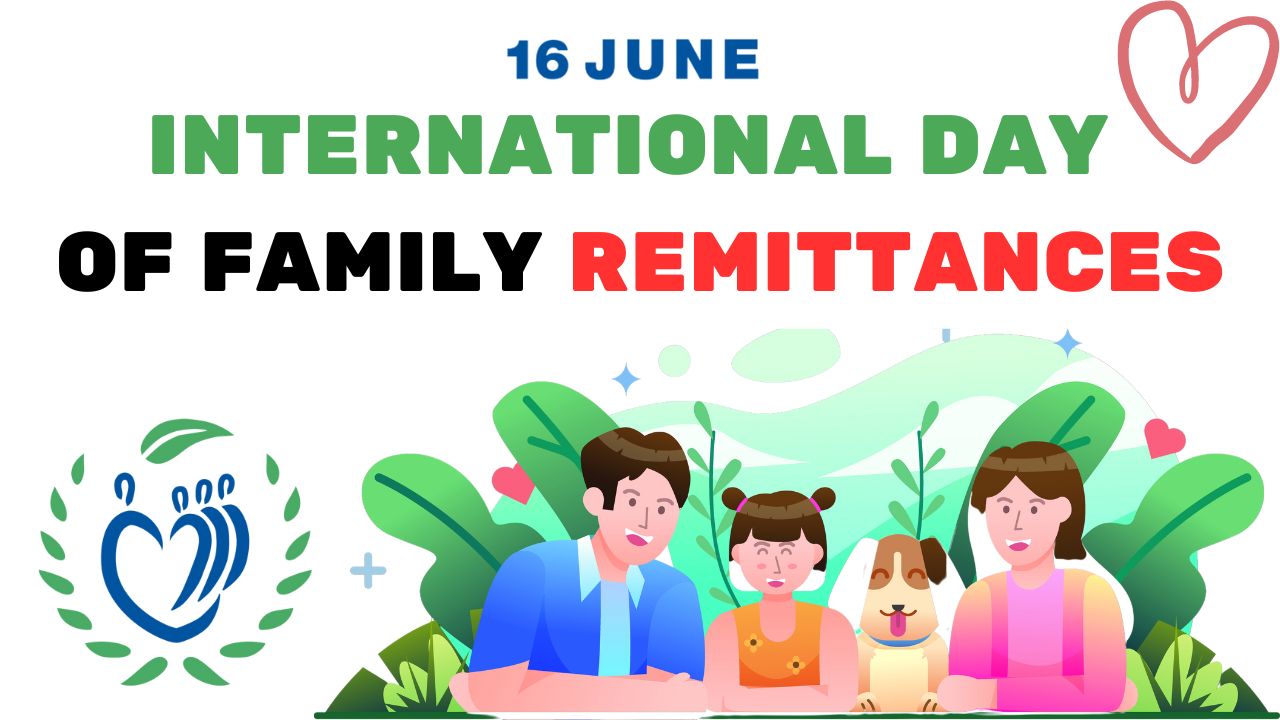International Day of Family Remittances: Recognizing the Power of Migration and Support
Introduction
The International Day of Family Remittances is a globally recognized observance that acknowledges the significant contributions of migrant workers and their remittances to the well-being of their families and communities. In this article, we will explore the importance of this day, shed light on the impact of family remittances, and discuss how this observance promotes sustainable development and financial inclusion worldwide.
Understanding Family Remittances
1. What are Family Remittances?
Family remittances refer to the money or financial resources that migrant workers send back to their families or home countries. These transfers are typically made to support the basic needs, education, healthcare, and overall welfare of the recipients.
2. The Role of Migration in Family Remittances
Migration plays a crucial role in family remittances. As individuals move to other countries in search of better economic opportunities, they often establish a support network to provide for their loved ones back home. These remittances not only support families but also contribute to the economic development of their home countries.
The Significance of the International Day of Family Remittances
The International Day of Family Remittances, observed annually on June 16th, highlights the importance of family remittances in achieving sustainable development goals and improving the lives of millions of people worldwide.
1. Promoting Financial Inclusion
The observance of this day aims to promote financial inclusion by recognizing the role of remittance services and encouraging the development of affordable, accessible, and secure financial systems. It emphasizes the need for financial institutions and governments to create an enabling environment for cost-effective remittance transfers.
2. Enhancing Development Impact
Family remittances contribute to the economic development of receiving countries by providing additional income and fostering household and community well-being. The International Day of Family Remittances serves as a platform to raise awareness about the positive impact of these transfers on poverty reduction, education, healthcare, and entrepreneurship.
3. Recognizing Migrant Contributions
This observance honors the hard work, sacrifice, and resilience of migrant workers who leave their homes and families behind to support their loved ones. It acknowledges their significant contributions to both their host countries and their countries of origin, fostering a culture of appreciation and respect for their efforts.
Celebrating the International Day of Family Remittances
The International Day of Family Remittances is celebrated worldwide through various activities and initiatives that promote awareness and understanding of family remittances. These celebrations aim to highlight the positive effects of these transfers and create dialogue around the challenges and opportunities associated with them.
1. Policy Dialogues and Forums
Policy dialogues and forums are organized on this day to facilitate discussions among policymakers, financial institutions, remittance service providers, and civil society organizations. These platforms foster collaboration, knowledge-sharing, and the formulation of policies that support the efficient flow of family remittances and financial inclusion.
2. Financial Literacy and Entrepreneurship Workshops
Financial literacy and entrepreneurship workshops are conducted to empower remittance recipients and their families with the knowledge and skills necessary to make informed financial decisions. These workshops provide guidance on saving, investment, and starting small businesses, enabling recipients to maximize the benefits of family remittances.
3. Cultural Celebrations and Community Events
Cultural celebrations and community events are organized to showcase the rich diversity and contributions of migrant communities. These events feature music, dance, food, and art, creating an inclusive and vibrant atmosphere that celebrates the unity and resilience of migrant families.
Conclusion
The International Day of Family Remittances shines a light on the significant impact of family remittances on individuals, families, and communities around the world. By recognizing the contributions of migrant workers and promoting financial inclusion, this observance plays a vital role in fostering sustainable development and global understanding. Let us embrace this day as an opportunity to celebrate the power of migration and support, and to work towards a more inclusive and prosperous future for all.
